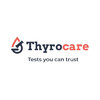264 Ramesh Hospitals Jobs

GDMO General Medicine
Ramesh Hospitals
posted 12hr ago
Job Role Insights
Flexible timing
Job Description
Ramesh Hospitals is looking for GDMO General Medicine to join our dynamic team and embark on a rewarding career journey
As a Senior Resident in General Medicine, you would play a crucial role in the medical field, specifically in the area of internal medicine.
Here are some key responsibilities and tasks associated with this role:Patient Care: You would provide comprehensive medical care to patients admitted to the hospital or visiting the outpatient department.
This includes conducting thorough medical examinations, diagnosing illnesses, prescribing appropriate treatments, and monitoring the progress of patients.
Clinical Decision Making: As a Senior Resident, you would be responsible for making important clinical decisions, such as ordering diagnostic tests, interpreting test results, and determining appropriate treatment plans based on the patient's condition and medical history.
Supervision and Training: You would oversee and mentor junior medical staff, including interns and residents.
This involves providing guidance in patient management, teaching clinical skills, and ensuring adherence to medical protocols and ethical standards.
Multidisciplinary Collaboration: You would collaborate with other healthcare professionals, such as specialists, nurses, and allied health personnel, to coordinate patient care and ensure comprehensive treatment plans.
This may involve participating in multidisciplinary team meetings and consultations.
Medical Documentation: Accurate and timely medical documentation is crucial in healthcare.
You would be responsible for maintaining detailed medical records, documenting patient histories, physical examinations, treatment plans, and progress notes.
Medical Research and Education: You may engage in research activities, such as conducting clinical studies or participating in research projects, to contribute to medical knowledge and advancements in the field.
Additionally, you may be involved in educating medical students, interns, and residents through lectures, presentations, and bedside teaching.
Continuity of Care: You would ensure the continuity of care by communicating with patients' primary care physicians, specialists, and other healthcare providers involved in their treatment.
This includes sharing relevant medical information, coordinating follow-up care, and facilitating smooth transitions between different healthcare settings.
Quality Improvement: You may actively participate in quality improvement initiatives and patient safety programs within the healthcare institution.
This involves identifying areas for improvement, implementing evidence-based practices, and monitoring outcomes to enhance patient care and safety.
Emergency Care: As a Senior Resident, you may be involved in providing emergency medical care to patients in critical conditions.
This includes assessing and stabilizing patients, managing acute medical emergencies, and making prompt decisions for the appropriate course of action.
As a Senior Resident in General Medicine, you would play a crucial role in the medical field, specifically in the area of internal medicine.
Here are some key responsibilities and tasks associated with this role:Patient Care: You would provide comprehensive medical care to patients admitted to the hospital or visiting the outpatient department.
This includes conducting thorough medical examinations, diagnosing illnesses, prescribing appropriate treatments, and monitoring the progress of patients.
Clinical Decision Making: As a Senior Resident, you would be responsible for making important clinical decisions, such as ordering diagnostic tests, interpreting test results, and determining appropriate treatment plans based on the patient's condition and medical history.
Supervision and Training: You would oversee and mentor junior medical staff, including interns and residents.
This involves providing guidance in patient management, teaching clinical skills, and ensuring adherence to medical protocols and ethical standards.
Multidisciplinary Collaboration: You would collaborate with other healthcare professionals, such as specialists, nurses, and allied health personnel, to coordinate patient care and ensure comprehensive treatment plans.
This may involve participating in multidisciplinary team meetings and consultations.
Medical Documentation: Accurate and timely medical documentation is crucial in healthcare.
You would be responsible for maintaining detailed medical records, documenting patient histories, physical examinations, treatment plans, and progress notes.
Medical Research and Education: You may engage in research activities, such as conducting clinical studies or participating in research projects, to contribute to medical knowledge and advancements in the field.
Additionally, you may be involved in educating medical students, interns, and residents through lectures, presentations, and bedside teaching.
Continuity of Care: You would ensure the continuity of care by communicating with patients' primary care physicians, specialists, and other healthcare providers involved in their treatment.
This includes sharing relevant medical information, coordinating follow-up care, and facilitating smooth transitions between different healthcare settings.
Quality Improvement: You may actively participate in quality improvement initiatives and patient safety programs within the healthcare institution.
This involves identifying areas for improvement, implementing evidence-based practices, and monitoring outcomes to enhance patient care and safety.
Emergency Care: As a Senior Resident, you may be involved in providing emergency medical care to patients in critical conditions.
This includes assessing and stabilizing patients, managing acute medical emergencies, and making prompt decisions for the appropriate course of action.
Employment Type: Full Time, Permanent
Read full job descriptionPrepare for General roles with real interview advice
What people at Ramesh Hospitals are saying
What Ramesh Hospitals employees are saying about work life
based on 71 employees
Flexible timing
Monday to Saturday
Within city
Day Shift
Similar Jobs for you
Share an Interview



























